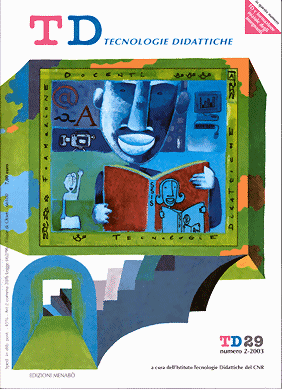The role of educational technology in humanities teacher training
Main Article Content
Abstract
Teacher training, so much as that initial ongoing, and 'a very complex issue and is attributed to piu'argomenti distinct, but at the same time linked to each other: the basic training deifuturi teachers, updating subject content and to-date ', training in new teaching methods and continuous assessment dellaloro effectiveness, and the necessary openness to reality' social and typicality 'territorial where education and training facilities operate.
Article Details
Section
Articles - Special Issue
Authors who publish with this journal agree to the following terms:
- Authors retain copyright and grant the journal right of first publication with the work simultaneously licensed under a Creative Commons CC BY 4.0 Attribution 4.0 International License.
- Authors are able to enter into separate, additional contractual arrangements for the non-exclusive distribution of the journal's published version of the work (e.g., post it to an institutional repository or publish it in a book), with an acknowledgement of its initial publication in this journal.
- Authors are permitted and encouraged to post their work online (e.g., in institutional repositories or on their website) prior to and during the submission process, as it can lead to productive exchanges, as well as earlier and greater citation of published work (See The Effect of Open Access)
References
Ferraris M. (1994), Il computer come strumento per un laboratorio di educazione linguistica, TD - Tecnologie Didattiche, n. 3, pp. 4-11, http://www.itd.ge.cnr.it/td/td3/fe rrarisfr.htm
Ferraris M., Manca S. (2000), Scusi, di che cosa si occupano le tecnologie didattiche? TD - Tecnologie Didattiche, n. 20, pp. 4-13.
Galliani L. Costa R., Amplatz C., Varisco B. M. (2000), Le tecnologie didattiche, Pensa Multimedia, Lecce.
Valenti R. (2000), L’informatica per la didattica del latino. Lettere al futuro, Loffredo, Napoli.

